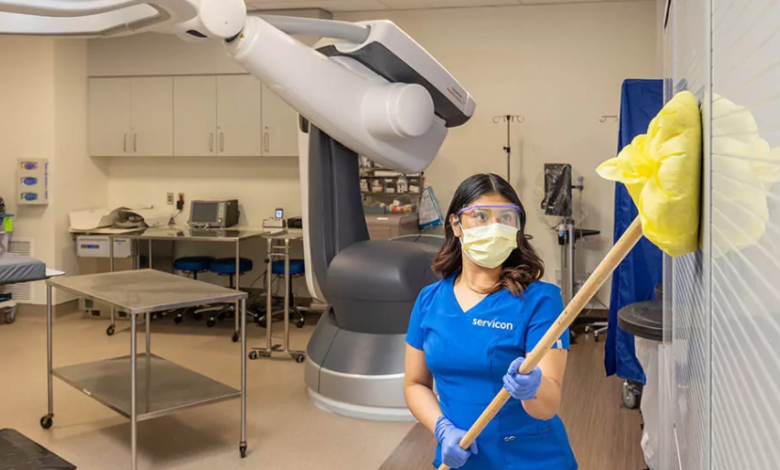The Role of a Disinfection Specialist in Maintaining Safe Environments

Introduction to the Profession
A disinfection specialist plays an essential role in ensuring that public spaces, workplaces, and private properties remain free from harmful pathogens. With the increasing awareness of hygiene and sanitation, the demand for these professionals has grown significantly. Their work goes beyond simple cleaning, as it involves specialized procedures, tools, and solutions to eliminate bacteria, viruses, and other contaminants effectively.
Importance of Disinfection in Modern Life
In today’s fast-paced and interconnected world, maintaining a clean environment is crucial for health and safety. Public areas, offices, schools, and healthcare facilities face high risks of germ transmission. This is where a disinfection specialist becomes indispensable, ensuring that these areas meet stringent hygiene standards. Their services help reduce the spread of illnesses, protect vulnerable populations, and contribute to a healthier community.
Skills and Qualifications of a Disinfection Specialist
To excel in this profession, one needs a combination of technical knowledge, attention to detail, and safety awareness. Many specialists undergo training in handling chemical disinfectants, understanding contamination risks, and operating specialized equipment such as electrostatic sprayers or UV disinfection systems. They must also be aware of industry regulations and health guidelines to ensure compliance during every task.
Tools and Techniques Used in Disinfection
A disinfection specialist uses various tools and methods depending on the environment and type of contamination. Common techniques include:
- Electrostatic spraying for even coverage of disinfectant solutions
- Fogging systems for large-scale areas
- UV-C light technology to kill germs without chemicals
- Manual surface cleaning with approved disinfectants
Each method is chosen carefully to match the setting, whether it’s a medical facility, a commercial building, or a residential property.
Safety Protocols and Compliance Standards
Working as a disinfection specialist requires strict adherence to safety protocols. Personal protective equipment (PPE) such as gloves, masks, and protective suits is essential to prevent exposure to hazardous substances. Specialists must also follow occupational safety standards and local regulations to avoid environmental damage and ensure the well-being of clients and workers.
The Role in Pandemic and Crisis Situations
The COVID-19 pandemic highlighted the critical importance of professional disinfection services. During health crises, a disinfection specialist becomes a frontline worker, tasked with decontaminating high-risk areas and preventing further spread of disease. Their ability to respond quickly and apply effective disinfection measures is vital for public safety.
See also: Fitted Kitchens: Transforming Your Home with Expert Kitchen Design
Benefits of Hiring a Professional Disinfection Service
Hiring a trained specialist offers numerous advantages:
- Thorough cleaning that targets invisible pathogens
- Use of professional-grade products for higher effectiveness
- Time efficiency compared to untrained cleaning staff
- Peace of mind knowing the environment meets health standards
These benefits make professional services a worthwhile investment for businesses, institutions, and homeowners.
Career Opportunities and Growth in the Field
As health and hygiene awareness grows, so does the demand for trained specialists. Career opportunities are available in cleaning companies, healthcare facilities, hospitality, transportation, and even government health departments. Continuous learning and certification can help professionals advance into supervisory or training roles.
Challenges Faced by Disinfection Specialists
While the job is rewarding, it also comes disinfection specialist with challenges. Exposure to hazardous chemicals, physical strain from cleaning tasks, and the need to work in potentially contaminated environments require both mental and physical resilience. Specialists must stay updated with new technologies and evolving health guidelines to remain effective in their work.
Conclusion
A disinfection specialist plays a vital role in protecting public health and ensuring safe living and working conditions. Through specialized knowledge, tools, and dedication, they contribute to creating healthier environments for everyone. As hygiene continues to be a priority worldwide, these professionals will remain essential in our efforts to prevent the spread of diseases and maintain high sanitation standards.




